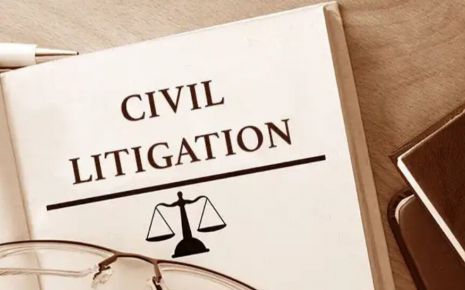AI Predictive Analytics For Human Rights Protection In India: Navigating Cultural Complexity In Definition And Codification
Developing AI for analysing and making decisions in human rights infringement
cases has hurdles due to the intricate and subjective nature of human rights. An
important challenge is incorporating the many cultural, social, and legal
intricacies associated with human rights breaches into an AI system. Different
nations and cultures have varying definitions and interpretations of human
rights, making it challenging to create a uniform set of codification
requirements.
Furthermore, the changing and developing characteristics of human rights standards make this task more complex, as new rights arise and current ones are reinterpreted over time. AI systems must deal with the uncertainty and subjectivity present in human rights issues, where context, purpose, and impact are key factors in deciding the seriousness and responsibility for breaches. To ensure the ethical and fair use of AI in human rights contexts, it is essential to address challenges through interdisciplinary collaboration among AI experts, human rights law specialists, and cultural studies scholars to create strong and culturally sensitive codification frameworks.
The research has been divided into exploring three aspects of the AI-Human rights interplay. First, to establish a better understanding of how AI-driven decision-making in India relates to the various international standards for human rights understanding. Second, to investigate the cultural challenges of using AI predictive analytics to codify the subjective elements of human rights abuses. Third, to ensure fair and effective justice delivery in India, we need AI systems that are sensitive to cultural norms and can help adjudicate cases of human rights violations.
Addressing the first concern, a large portion of society is currently unsure about the real implications AI systems will have on people. There is evidence that some AI systems are already infringing on fundamental rights and freedoms, despite optimism that AI will result in "universal good". Human rights may be relied upon to help chart the path ahead as stakeholders search for a Pole Star to direct the development of AI.
An important class of dangers and harms can be identified, prevented, and addressed with the help of international human rights vis-à-vis the Indian laws governing the human rights framework. The aspirational, normative, and legal direction needed to maintain human dignity and the inherent worth of every individual, regardless of caste, creed, gender or jurisdiction, might be given to those building AI through a human rights-based framework.
AI must, at the very least, not violate core human values in its development and application if it is to serve the greater good. International human rights offer a strong and comprehensive articulation of fundamental principles and the same could be codified in the development of such an AI system through a supervised learning model and calibrating its response concerning the Indian cases. The fact that the fields of academia, government, civil society, and intergovernmental organisations are still in their infancy presents significant hurdles to the same.
Adopting a human rights approach to AI may be gaining traction in a multi-cultural civil society like India. Human rights cannot resolve every issue regarding AI, both known and unknown. Research and development in this field on a current basis should concentrate on how organisational, procedural, and policy changes could effectively use a human rights approach.
Predictive analytics is a two-edged sword when it comes to the lofty goal of protecting human rights in India through the application of AI. India's cultural variety makes it particularly difficult to define and codify what constitutes a violation of human rights. The nation's complex civilization contains many subjective components, such as social standards and religious customs, which makes it challenging to develop an AI model that is appropriate for all situations.
For example, customs that one society may view as abusive may be deemed traditional in another. Since human rights are perceived locally via the prism of norms and beliefs rather than being generally defined, the application of AI predictive analytics requires cultural sensitivity. Subjective components are frequently involved in human rights breaches. For example, cultural norms may influence how one interprets the right to freedom of expression. Pattern and data-driven AI systems suffer from subjectivity. A careful balance between context-awareness and objective norms is needed to codify these subtleties.
In the context of AI, discrimination may result from algorithmic prejudice, biased data, or unequal access to these technologies for some, often marginalised groups. Regarding data bias, Big Data serves as a source of knowledge for automated decision-making systems that use machine learning and deep learning. Unfortunately, the data that is currently accessible frequently lacks representativeness of the population or phenomenon under study, contains human-generated content that can be biased against particular groups, or lacks factors that accurately characterise the phenomenon we wish to anticipate.
Furthermore, biases might be reinforced by AI models since they are trained on historical data. Systemic prejudice and historical injustices are firmly rooted in India. AI systems may unintentionally perpetuate discriminatory practices if they are trained on predisposed data.
Developing flexible models that can identify context-specific violations while avoiding bias perpetuation is challenging. To prevent the perpetuation of current inequities, it becomes imperative to ensure fairness and equity in training data.
AI decision-making must be transparent. Users ought to be aware of how algorithms determine whether or not there have been violations of human rights. There must also be procedures in place for accountability and redress. If an AI system misclassifies a cultural practice as abusive, there have to be channels for input and correction. This calls for an interdisciplinary approach that blends social sciences and technology to guarantee that AI systems are not only technically sound but also ethically and culturally sensitive to the intricate fabric of Indian society.
Finally buckling down to the third issue, to achieve equitable and efficient justice delivery in India, it is crucial to incorporate AI systems that are designed to negotiate cultural norms, especially when deciding instances involving violations of human rights. Suggestively, AI systems can get a sophisticated knowledge of the intricacies present in India's cultural milieu by being trained on extensive datasets that include historical antecedents, case-specific details, and cultural nuances.
Additionally, by adding interpretability methods to AI models, stakeholders can understand the rationale behind the judgements made by the system, which promotes accountability and openness in the adjudicatory process.
The development of AI-driven technologies that can make it easier to find hidden prejudices in court procedures and legislative frameworks might help reduce the possibility of unfair results. In addition, the efficiency and scalability of AI technology can allow for prompt involvement in human rights issues, guaranteeing prompt reparations for victims and prosecution of offenders.
However, to minimise any ethical or legal issues, the application of AI systems in the field of human rights protection requires caution. Strong protections must be put in place to stop algorithmic prejudice, protect people's right to privacy, and respect procedural justice and due process. To create AI systems that comply with international human rights norms and constitutional principles, legal experts, philosophers, AI developers, and human rights practitioners must work together in interdisciplinary teams.
In conclusion, AI predictive analytics can improve India's protection of human rights, but it needs to understand the complex cultural landscape. To incorporate such a technology serving mankind and ensuring the protection of human rights, India can bolster its justice delivery mechanisms and advance the protection of human rights for all its citizens, by harnessing the potential of AI predictive analytics while cognizant of cultural complexities.
References:
Furthermore, the changing and developing characteristics of human rights standards make this task more complex, as new rights arise and current ones are reinterpreted over time. AI systems must deal with the uncertainty and subjectivity present in human rights issues, where context, purpose, and impact are key factors in deciding the seriousness and responsibility for breaches. To ensure the ethical and fair use of AI in human rights contexts, it is essential to address challenges through interdisciplinary collaboration among AI experts, human rights law specialists, and cultural studies scholars to create strong and culturally sensitive codification frameworks.
The research has been divided into exploring three aspects of the AI-Human rights interplay. First, to establish a better understanding of how AI-driven decision-making in India relates to the various international standards for human rights understanding. Second, to investigate the cultural challenges of using AI predictive analytics to codify the subjective elements of human rights abuses. Third, to ensure fair and effective justice delivery in India, we need AI systems that are sensitive to cultural norms and can help adjudicate cases of human rights violations.
Addressing the first concern, a large portion of society is currently unsure about the real implications AI systems will have on people. There is evidence that some AI systems are already infringing on fundamental rights and freedoms, despite optimism that AI will result in "universal good". Human rights may be relied upon to help chart the path ahead as stakeholders search for a Pole Star to direct the development of AI.
An important class of dangers and harms can be identified, prevented, and addressed with the help of international human rights vis-à-vis the Indian laws governing the human rights framework. The aspirational, normative, and legal direction needed to maintain human dignity and the inherent worth of every individual, regardless of caste, creed, gender or jurisdiction, might be given to those building AI through a human rights-based framework.
AI must, at the very least, not violate core human values in its development and application if it is to serve the greater good. International human rights offer a strong and comprehensive articulation of fundamental principles and the same could be codified in the development of such an AI system through a supervised learning model and calibrating its response concerning the Indian cases. The fact that the fields of academia, government, civil society, and intergovernmental organisations are still in their infancy presents significant hurdles to the same.
Adopting a human rights approach to AI may be gaining traction in a multi-cultural civil society like India. Human rights cannot resolve every issue regarding AI, both known and unknown. Research and development in this field on a current basis should concentrate on how organisational, procedural, and policy changes could effectively use a human rights approach.
Predictive analytics is a two-edged sword when it comes to the lofty goal of protecting human rights in India through the application of AI. India's cultural variety makes it particularly difficult to define and codify what constitutes a violation of human rights. The nation's complex civilization contains many subjective components, such as social standards and religious customs, which makes it challenging to develop an AI model that is appropriate for all situations.
For example, customs that one society may view as abusive may be deemed traditional in another. Since human rights are perceived locally via the prism of norms and beliefs rather than being generally defined, the application of AI predictive analytics requires cultural sensitivity. Subjective components are frequently involved in human rights breaches. For example, cultural norms may influence how one interprets the right to freedom of expression. Pattern and data-driven AI systems suffer from subjectivity. A careful balance between context-awareness and objective norms is needed to codify these subtleties.
In the context of AI, discrimination may result from algorithmic prejudice, biased data, or unequal access to these technologies for some, often marginalised groups. Regarding data bias, Big Data serves as a source of knowledge for automated decision-making systems that use machine learning and deep learning. Unfortunately, the data that is currently accessible frequently lacks representativeness of the population or phenomenon under study, contains human-generated content that can be biased against particular groups, or lacks factors that accurately characterise the phenomenon we wish to anticipate.
Furthermore, biases might be reinforced by AI models since they are trained on historical data. Systemic prejudice and historical injustices are firmly rooted in India. AI systems may unintentionally perpetuate discriminatory practices if they are trained on predisposed data.
Developing flexible models that can identify context-specific violations while avoiding bias perpetuation is challenging. To prevent the perpetuation of current inequities, it becomes imperative to ensure fairness and equity in training data.
AI decision-making must be transparent. Users ought to be aware of how algorithms determine whether or not there have been violations of human rights. There must also be procedures in place for accountability and redress. If an AI system misclassifies a cultural practice as abusive, there have to be channels for input and correction. This calls for an interdisciplinary approach that blends social sciences and technology to guarantee that AI systems are not only technically sound but also ethically and culturally sensitive to the intricate fabric of Indian society.
Finally buckling down to the third issue, to achieve equitable and efficient justice delivery in India, it is crucial to incorporate AI systems that are designed to negotiate cultural norms, especially when deciding instances involving violations of human rights. Suggestively, AI systems can get a sophisticated knowledge of the intricacies present in India's cultural milieu by being trained on extensive datasets that include historical antecedents, case-specific details, and cultural nuances.
Additionally, by adding interpretability methods to AI models, stakeholders can understand the rationale behind the judgements made by the system, which promotes accountability and openness in the adjudicatory process.
The development of AI-driven technologies that can make it easier to find hidden prejudices in court procedures and legislative frameworks might help reduce the possibility of unfair results. In addition, the efficiency and scalability of AI technology can allow for prompt involvement in human rights issues, guaranteeing prompt reparations for victims and prosecution of offenders.
However, to minimise any ethical or legal issues, the application of AI systems in the field of human rights protection requires caution. Strong protections must be put in place to stop algorithmic prejudice, protect people's right to privacy, and respect procedural justice and due process. To create AI systems that comply with international human rights norms and constitutional principles, legal experts, philosophers, AI developers, and human rights practitioners must work together in interdisciplinary teams.
In conclusion, AI predictive analytics can improve India's protection of human rights, but it needs to understand the complex cultural landscape. To incorporate such a technology serving mankind and ensuring the protection of human rights, India can bolster its justice delivery mechanisms and advance the protection of human rights for all its citizens, by harnessing the potential of AI predictive analytics while cognizant of cultural complexities.
References:
- Raso, Filippo and Hilligoss, Hannah and Krishnamurthy, Vivek and Krishnamurthy, Vivek and Bavitz, Christopher and Kim, Levin Yerin, Artificial Intelligence & Human Rights: Opportunities & Risks (September 25, 2018). Berkman Klein Center Research Publication No. 2018-6, Available at
SSRN: https://ssrn.com/abstract=3259344 or http://dx.doi.org/10.2139/ssrn.3259344 - Mantelero, A. (2018, August). AI and Big Data: A blueprint for a human rights, social and ethical impact assessment. Computer Law & Security Review, 34(4), 754–772. https://doi.org/10.1016/j.clsr.2018.05.017
- https://apo.org.au/sites/default/files/resource-files/2018-10/apo-nid196716.pdf
Law Article in India
Legal Question & Answers
Lawyers in India - Search By City
LawArticles
How To File For Mutual Divorce In Delhi

How To File For Mutual Divorce In Delhi Mutual Consent Divorce is the Simplest Way to Obtain a D...
Increased Age For Girls Marriage

It is hoped that the Prohibition of Child Marriage (Amendment) Bill, 2021, which intends to inc...
Facade of Social Media

One may very easily get absorbed in the lives of others as one scrolls through a Facebook news ...
Section 482 CrPc - Quashing Of FIR: Guid...

The Inherent power under Section 482 in The Code Of Criminal Procedure, 1973 (37th Chapter of t...
The Uniform Civil Code (UCC) in India: A...

The Uniform Civil Code (UCC) is a concept that proposes the unification of personal laws across...
Role Of Artificial Intelligence In Legal...

Artificial intelligence (AI) is revolutionizing various sectors of the economy, and the legal i...








Please Drop Your Comments